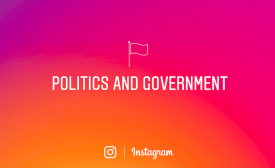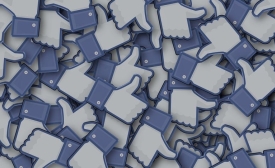
The Facebook guide positions images as a "new form of language."

Facebook's guide to digital diplomacy and audience engagement.

Either Facebook starts sharing more information about how its algorithms work, or social media platforms will be reduced to battlefields for 21st century warfare.
One of the most eye-opening moments of my time as the deputy assistant secretary for digital strategy at the U.S. State Department occurred on a trip to the country of Georgia, aimed at helping the government build its digital capacity to better serve its population. Our message was the same advice we’d given to countless governments: Focus on Facebook. It was the dominant player. Elites tended to use Twitter. Google ads were worth it if you had the money. But for governments wanting to reach real people on a global scale, Facebook was the scalable, smart solution.

Ali Fisher uses data to dispute the claim that ISIS is on the decline.
The companies say they are acting on this problem. Facebook says it has begun to use artificial intelligence to spot images, videos and text related to terrorism as well as clusters of fake accounts. Meanwhile, Twitter says it suspended 299,649 accounts in the first six months of this year - 75% of these before their first tweet. The companies are now sharing databases of suspicious material, and they have set up the Global Internet Forum to bring together the major players on the issue.
It was only a few years ago that e-diplomacy was being heralded as an unalloyed force for good. This 21st Century form of statecraft would bring transparency and openness to the closeted world of international affairs...U.S. President Donald Trump has obviously highlighted the dangers of conducting foreign policy by social media. In the hands of the impulsive and uniformed, the smart phone becomes a dangerous weapon.







